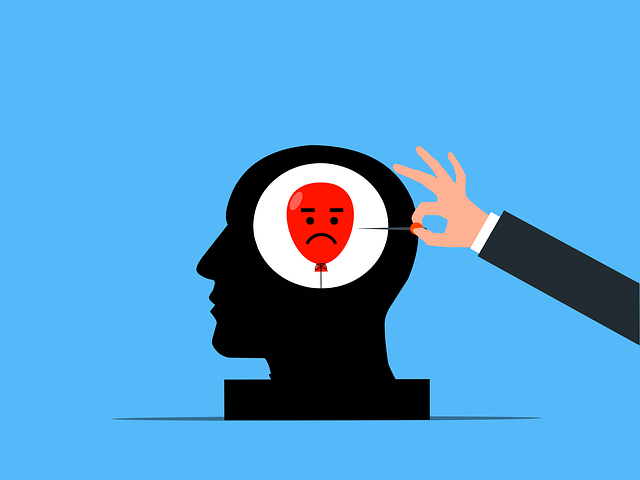Childhood trauma can have a lasting impact on individuals, affecting their relationships, work, and daily life. It is important to recognize the impact of childhood trauma and develop healthy coping strategies to move forward with a positive outlook.
In this post, we will discuss the different types of childhood trauma, the long-term effects of childhood trauma, common triggers, healthy coping strategies, seeking professional help, practicing self-care, and maintaining a positive outlook.
Understanding Childhood Trauma
 Childhood trauma refers to experiences that are emotionally or physically harmful or life-threatening that occur before the age of 18. This can include physical or sexual abuse, neglect, witnessing violence or substance abuse in the home, or experiencing a natural disaster. Childhood trauma can affect individuals in different ways and can lead to mental health issues such as anxiety, depression, and post-traumatic stress disorder (PTSD).
Childhood trauma refers to experiences that are emotionally or physically harmful or life-threatening that occur before the age of 18. This can include physical or sexual abuse, neglect, witnessing violence or substance abuse in the home, or experiencing a natural disaster. Childhood trauma can affect individuals in different ways and can lead to mental health issues such as anxiety, depression, and post-traumatic stress disorder (PTSD).
There are different types of childhood trauma including acute trauma which is a single traumatic event such as a car accident or natural disaster. Chronic trauma is ongoing exposure to traumatic events such as living in a violent home or being in foster care. Complex trauma is exposure to multiple traumatic events such as physical abuse and neglect.
Recognizing the Impact of Childhood Trauma
The long-term effects of childhood trauma can be significant and impact individuals throughout their lives. This can include difficulty regulating emotions, low self-esteem, trust issues, and difficulty forming healthy relationships. Childhood trauma can also impact work performance and daily life by causing difficulty concentrating or making decisions.
Individuals who have experienced childhood trauma may struggle with intimacy and trust in relationships which can lead to isolation and loneliness. They may also struggle with substance abuse or engage in risky behaviors as a way to cope with their emotions.
Identifying Triggers of Childhood Trauma
Triggers are situations or events that remind individuals of their traumatic experiences and can cause emotional distress. Common triggers for childhood trauma can include certain smells, sounds, or sights that remind individuals of their traumatic experiences. Triggers can vary from person to person and it is important for individuals to identify their own triggers in order to develop healthy coping strategies.
Developing Coping Strategies
Healthy coping strategies can help individuals deal with the emotional distress caused by childhood trauma. This can include exercise, meditation, journaling, or talking to a trusted friend or family member. It is important for individuals to find coping strategies that work for them and to practice them regularly.
Other healthy coping strategies can include seeking professional help such as therapy or counseling. Cognitive-behavioral therapy (CBT) can be helpful for individuals dealing with childhood trauma as it focuses on changing negative thought patterns and behaviors.
Seeking Professional Help
Seeking professional help can be beneficial for individuals dealing with childhood trauma. Therapy or counseling can provide a safe space for individuals to process their emotions and develop healthy coping strategies. Eye Movement Desensitization and Reprocessing (EMDR) therapy is another type of therapy that can be helpful for individuals dealing with childhood trauma.
It is important for individuals to find a therapist who specializes in trauma and who they feel comfortable talking to. Seeking professional help does not mean that an individual is weak, but rather that they are taking steps towards healing and moving forward.
Practicing Self-Care
Practicing self-care is important for individuals dealing with childhood trauma as it helps them prioritize their own well-being. Self-care activities can include exercise, spending time in nature, reading a book, or taking a relaxing bath. It is important for individuals to find self-care activities that they enjoy and make time for them regularly.
Moving Forward with a Positive Outlook
Maintaining a positive outlook can be challenging when dealing with childhood trauma, but it is important for individuals to focus on the present moment and take steps towards healing. This can include setting small goals and celebrating accomplishments, practicing gratitude, and surrounding oneself with positive and supportive people.
It is important for individuals to remember that healing is a process and that it takes time. It is okay to have setbacks and to ask for help when needed.
Childhood trauma can have a lasting impact on individuals, but it is possible to move forward with healthy coping strategies and a positive outlook. It is important for individuals to recognize the impact of childhood trauma, identify triggers, develop healthy coping strategies, seek professional help, practice self-care, and maintain a positive outlook. Remember that healing is a process and it takes time, but it is possible to overcome childhood trauma and live a fulfilling life.








